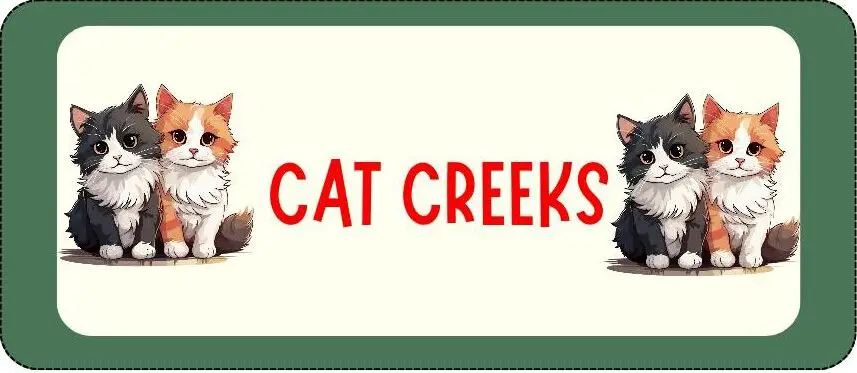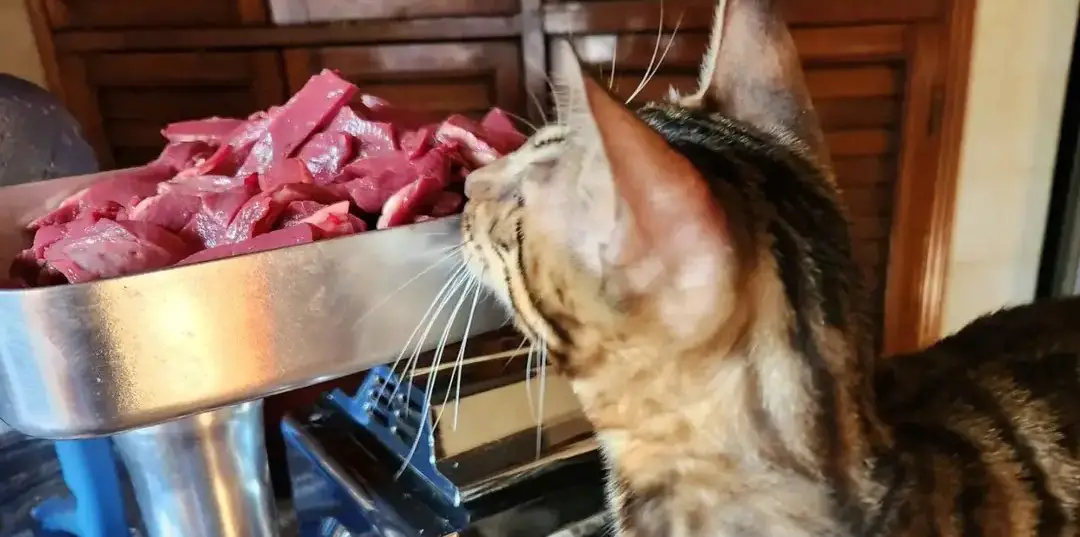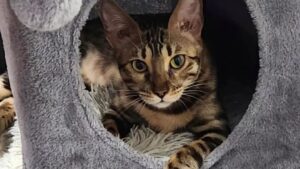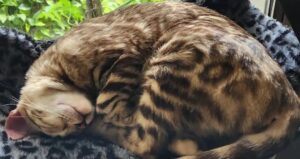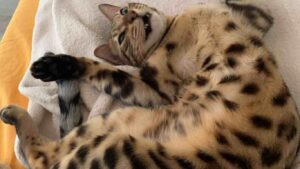Though I am not a veterinarian, I can tell you that I know one or two things about some of the reasons your cat is lethargic not eating or drinking.
So, in this post, I’ll be sharing my opinion and thoughts on why your cat is lethargic not eating or drinking, and what I recommend you should do to help your cat.
Keep reading to find out more…
Why is My Cat Lethargic Not Eating Or Drinking
A lethargic cat that isn’t eating or drinking may be suffering from a serious underlying condition such as an infection, gastrointestinal issues, dental problems, hairballs, or a systemic illness like kidney disease.
These issues can cause discomfort and pain, leading to a loss of appetite and lethargy.
It is essential to consult a veterinarian to rule out more serious conditions like kidney failure, diabetes, or poisoning, which can have severe consequences if left untreated.
Let’s break it down further!
Reasons Your Cat Is Lethargic Not Eating or Drinking
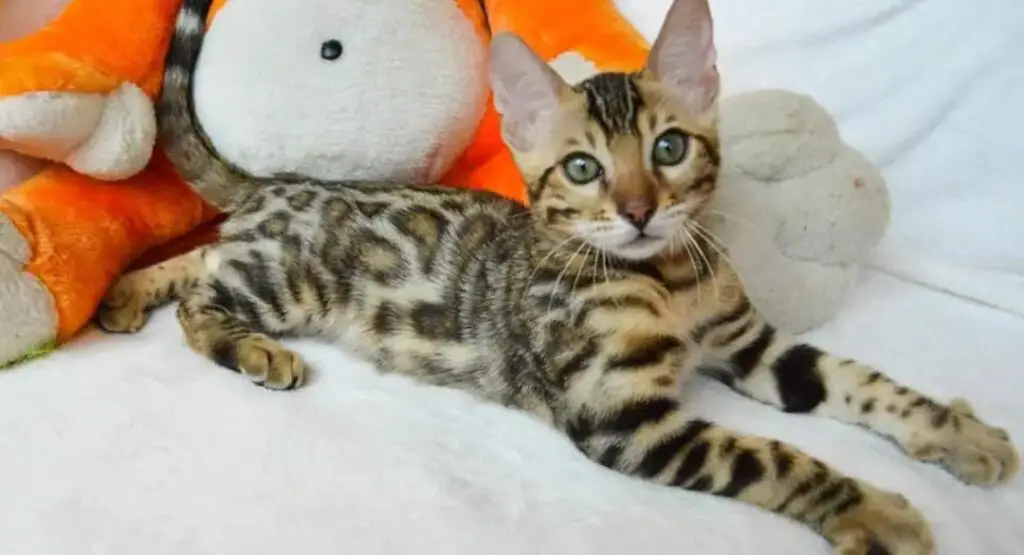
Based on the information I gathered online and my personal opinion, here are some of the most common reasons your cat is lethargic not eating or drinking:
1. Gastrointestinal issues
Based on the information I gathered, I can tell you that one possible reason for your cat’s loss of appetite and lethargy is gastrointestinal issues.
These issues can range from a simple upset stomach to more serious conditions like gastritis or inflammatory bowel disease.
Gastrointestinal issues can cause discomfort and make your cat reluctant to eat or drink.
Potential causes: Gastrointestinal issues can be triggered by various factors such as dietary changes, food allergies, infections, parasites, or even stress.
Addressing the Issue: If you suspect that your cat is experiencing gastrointestinal problems, it’s best to consult with your veterinarian.
They can perform a thorough examination and may recommend specific tests to determine the underlying cause.
Treatment options may include dietary changes, medication, or even supportive care to help your cat regain their appetite and energy.
2. Poisoning
Another possible reason for your cat’s lack of appetite and lethargy could be poisoning.
Cats are curious creatures and may ingest harmful substances either indoors or outdoors.
Common household toxins include certain plants, chemicals, medications, and even certain human foods.
Potential causes: Accidental ingestion of toxic substances can occur due to negligence or lack of awareness.
It’s crucial to ensure a safe environment for your cat, keeping potentially harmful items out of their reach.
Addressing the Issue: If you suspect poisoning, it’s critical to act swiftly. Contact your veterinarian or a poison control hotline immediately.
They will guide you on how to handle the situation and may advise inducing vomiting or taking your cat to the nearest veterinary clinic for further treatment.
Related: When you should take your cat to the vet.
3. Hairballs
Hairballs are a common issue that many cats face, especially those with longer fur.
When cats groom themselves, they ingest hair, which can accumulate in their digestive system, leading to discomfort and a decreased appetite.
Potential causes: Cats groom themselves by licking their fur, and as a result, they naturally swallow some hair.
However, excessive grooming or poor grooming habits can increase the likelihood of hairball formation.
Addressing the Issue: Regular brushing can significantly reduce the formation of hairballs.
Additionally, providing your cat with specialized hairball control diets or hairball remedies can help facilitate the passage of hair through their digestive system.
If your cat’s symptoms persist or worsen, consult your veterinarian for further advice.
4. Heart disease
Heart disease is a serious condition that can affect cats of all ages.
Cats with heart disease may exhibit symptoms such as lethargy, loss of appetite, and difficulty breathing.
Potential causes: Heart disease can be congenital or acquired and may result from various factors, including genetics, high blood pressure, thyroid disorders, or heartworm disease.
Addressing the Issue: If you suspect that your cat may have heart disease, it’s crucial to seek veterinary care promptly.
Your veterinarian will perform a thorough examination, including diagnostic tests such as X-rays, electrocardiograms, or echocardiograms.
Treatment options may include medication, dietary changes, or other interventions to manage the underlying condition.
5. Dental problems
Just like humans, cats can experience dental issues that can make eating uncomfortable.
Dental problems, such as gum disease, tooth decay, or oral infections, can lead to pain and difficulty chewing, resulting in a decreased appetite.
Potential causes: Poor dental hygiene, genetic predisposition, or even trauma to the mouth can contribute to dental problems in cats. Additionally, certain breeds are more prone to dental issues than others.
Addressing the Issue: If you suspect dental problems, it’s crucial to have your cat’s teeth examined by a veterinarian.
They may recommend dental cleaning, tooth extractions, or other necessary treatments.
Additionally, maintaining good dental hygiene at home by brushing your cat’s teeth regularly or providing dental treats can help prevent future issues.
6. Stress and anxiety
Cats are sensitive creatures, and stress or anxiety can greatly impact their appetite and overall well-being.
Changes in the environment, the addition of new pets or family members, or even loud noises can trigger stress in cats.
Potential causes: Cats are creatures of habit, and any disruption to their routine or territory can cause stress.
Cats may also experience anxiety due to separation from their owners or previous traumatic experiences.
Addressing the Issue: Creating a calm and safe environment for your cat is essential. You should provide them with a quiet space to retreat when feeling stressed.
You should also consider using pheromone diffusers or sprays, which can help create a sense of calm.
You can try engaging in interactive play sessions and providing mental stimulation can also help alleviate stress and anxiety.
7. Discomfort and pain
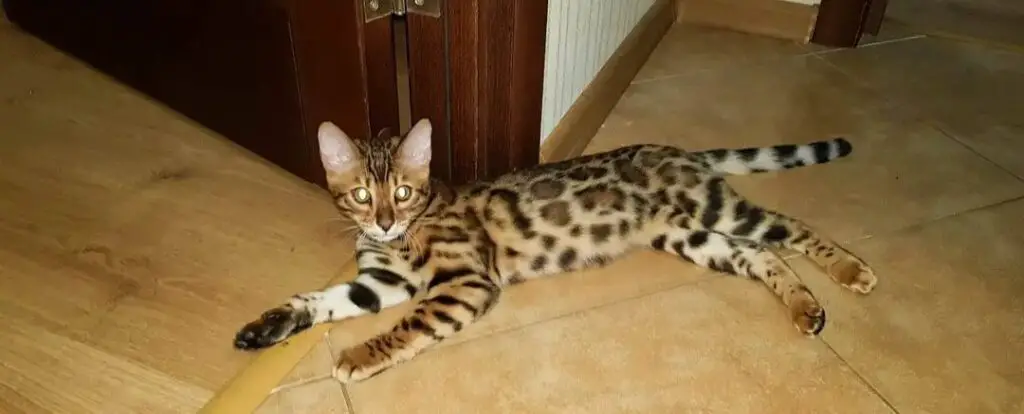
If your cat is experiencing discomfort or pain, it can significantly impact their appetite and energy levels.
Various underlying conditions, such as arthritis, urinary tract infections, or injuries, can cause pain and make eating or drinking unappealing.
Potential causes: Aging, injuries, infections, or underlying medical conditions can contribute to discomfort and pain in cats.
Always keep in mind that it’s important to pay attention to any changes in their behavior or physical condition.
Addressing the Issue: If you suspect that your cat is in pain or discomfort, you should consult with your veterinarian.
They can perform a thorough examination, recommend diagnostic tests if necessary, and prescribe appropriate pain management or treatments.
You should also ensure that your cat has a comfortable and well-padded resting area, which can also help alleviate discomfort.
8. Side effects of medication
In some cases, the medications prescribed to your cat may have side effects that can cause lethargy and a decreased appetite.
It’s essential to be aware of the potential side effects of any medications your cat may be taking.
Potential causes: Certain medications, such as antibiotics or pain relievers, can cause temporary side effects like gastrointestinal upset or loss of appetite.
Addressing the Issue: If you suspect that your cat’s medication is causing these symptoms, you should contact your veterinarian.
They can assess the situation and determine if an adjustment in medication dosage or a change in medication is necessary.
9. Liver and kidney disease
Liver and kidney diseases can significantly impact a cat’s appetite and energy levels.
These conditions can lead to a buildup of toxins in the body, resulting in lethargy and a decreased interest in food and water.
Potential causes: Liver disease can be caused by infections, toxins, certain medications, or even genetics.
Kidney disease, on the other hand, can be a result of aging, infections, high blood pressure, or underlying medical conditions.
Addressing the Issue: If you suspect liver or kidney disease, you should consult with your veterinarian immediately.
They can perform diagnostic tests, such as blood work and urine analysis, to assess the extent of the condition.
Treatment options may include medication, dietary changes, or supportive care to manage symptoms and improve your cat’s quality of life.
Related: Identifying a sick cat.
10. Cancer
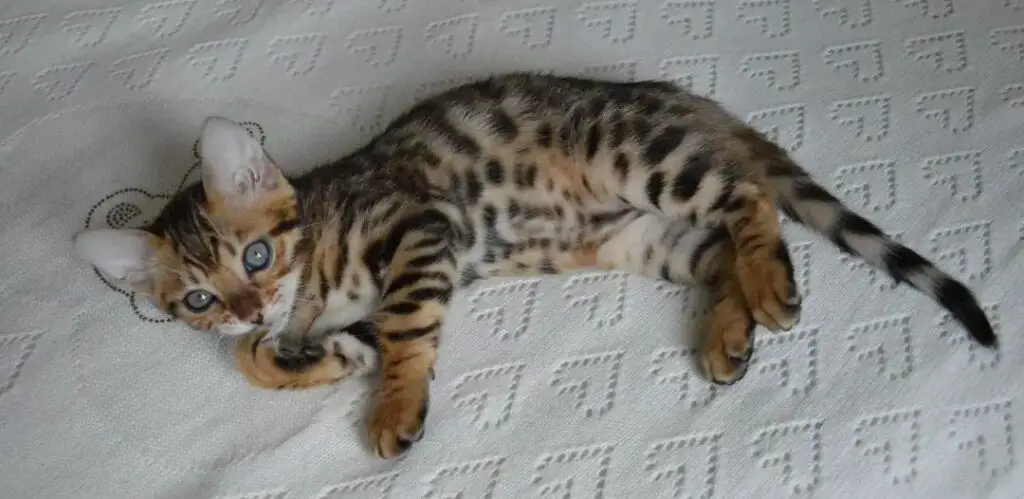
Cancer is a serious condition that can affect cats, just as it does humans.
The presence of cancerous cells in the body can cause a range of symptoms, including lethargy, weight loss, and decreased appetite.
Potential causes: It’s challenging to pinpoint a specific cause for cancer in cats.
However, certain risk factors, such as exposure to environmental toxins or a weakened immune system, can increase the likelihood of developing cancer.
Addressing the Issue: If you suspect that your cat may have cancer, you should consult with your veterinarian as soon as possible.
They can conduct a thorough examination and may recommend further testing, such as biopsies or imaging, to confirm the diagnosis.
Treatment options may include surgery, chemotherapy, or radiation therapy, depending on the type and stage of cancer.
Related: Common cat health problems.
11. Diabetes
Diabetes is a metabolic disorder that affects cats, resulting in high blood sugar levels.
This condition can cause increased thirst, frequent urination, weight loss, and a decreased appetite.
Potential causes: While the exact cause of diabetes in cats is unknown, certain factors, such as obesity, genetics, and a sedentary lifestyle, can contribute to its development. Female and older cats are also at a higher risk.
Addressing the Issue: If you suspect that your cat may have diabetes, you should consult with your veterinarian for proper diagnosis and management.
They can perform blood tests to measure blood sugar levels and recommend appropriate treatment options.
Managing diabetes in cats often involves dietary changes, insulin therapy, and regular monitoring of blood sugar levels.
Related: How to keep your cat healthy.
Final Thoughts
In summary, if your cat is lethargic, not eating, or drinking, it could be a sign of a serious health issue.
Immediate veterinary attention is crucial to diagnose and treat any underlying conditions.
Remember, early intervention can greatly improve your cat’s overall prognosis and well-being.
